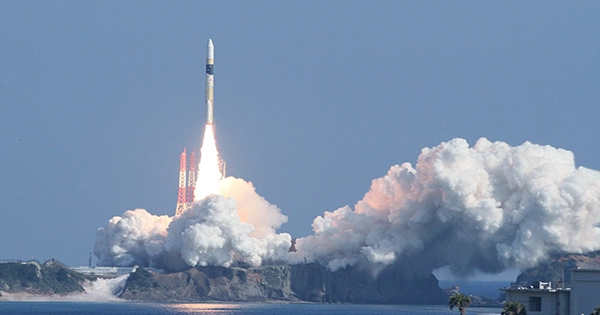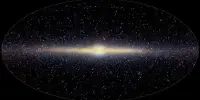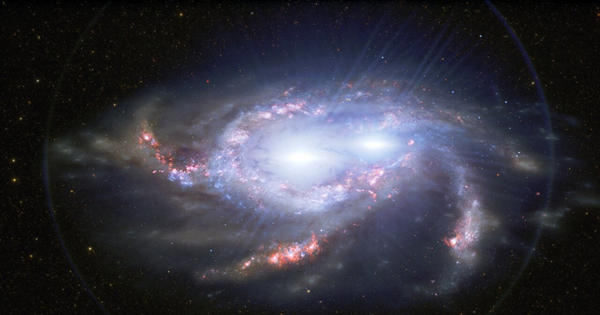The Chinese achievement was seen by some as a display of an orbit-offensive capability—the capacity to conduct unwanted, near passes to other satellites. The technology in question is an early version of what Japan is rushing to develop.
A growing risk of collisions is posed by the amount of debris orbiting the globe as commercial space activities take off. Companies from all over the world are developing ways to send this trash hurtling toward Earth so it can catch fire during reentry and burn up.
Although there are no regulations governing cleaning or space-debris mitigation, Japan plans to play a significant role in their development. In response to China’s expanding space capabilities, the country has increased collaboration with the US.
“In space, Japan has always been a country of second gear. The first gear was always the United States, Soviet Union and, recently, China,” said Kazuto Suzuki, a space policy expert at the University of Tokyo’s Graduate School of Public Policy. “This is a golden opportunity for Japan, but the time is very short.”
There’s a lot of trash in low Earth orbit. Numerous bits of now-useless equipment and satellites that circle the planet at 17,500 miles per hour were left behind by decades of research. Others are the size of a school bus, while some are the size of a marble.
Cooperation and trust among nations, especially the main polluters—the United States, China, and Russia—are necessary to deal with space debris. However, given the tense state of relations between Washington and both Beijing and Moscow, that has been in short supply. After the Chinese space station had to move to avoid colliding with Starlink satellites run by Elon Musk’s SpaceX enterprise, the Chinese accused the United States of breaking international treaty duties in 2021.
According to Harvard-Smithsonian Center for Astrophysics astrophysicist Jonathan McDowell, cooperation on this issue “only works if the countries are willing to put international interests ahead of their own paranoia about military concerns, and it’s not clear that China is, and the U.S. is definitely not.”
“The problem is there’s no international air traffic controller for space,” he added.
Japan is advancing quickly, whereas U.S. efforts at mitigation are still in their infancy. Its Aerospace Exploration Agency has teamed up with Tokyo-based Astroscale to execute the first debris cleanup mission and start providing regular cleaning services by 2030.
In order to prevent satellites from becoming outdated too quickly and to increase their lifespans, Astroscale is also developing technologies to refuel and repair satellites in orbit. The same technologies would enable Astroscale’s missions to refuel in orbit, removing more debris each time.
“Space is big, but the orbits around the Earth are not. The highways that we are using are limited,” said Chris Blackerby, a former NASA official who is Astroscale’s chief operating officer. “So if we keep putting stuff up there and leaving it up there, there is going to be an accident. It’s not a matter of if, it’s a matter of when. We have to reduce that risk.”
The Japanese government is attempting to establish standards that businesses and other nations may adhere to by partnering with Astroscale. The government started developing laws and regulations for organizations engaged in space debris clearance missions and research earlier this year. The objective is to establish openness and notification as the standard, which experts say is critical to prevent inciting rivalry and potential conflict.
“Setting a precedent is a great way to hold other countries accountable,” Suzuki said. “It will — not legally, but morally — bind other countries. And if China, for example, is trying to find different ways to approach this, then China might need to explain why China is doing something different from what Japan did.”
Companies from Australia, Europe, and North America are pursuing this. Both Lockheed Martin and Raytheon are involved in the United States, where a recent FCC decision reduced the limit for “de-orbiting” satellites post-mission from 25 years to five. The Canadian space agency has hired Obruta Space Solutions to create debris-removal technologies. The European Space Agency and the Swiss start-up ClearSpace are collaborating to achieve the same goal.
Chinese businesses are also paying attention to the problem. Shenzhen-based space mining startup Origin Space debuted a prototype of a robot that can catch space junk with a big net last year.
The country of China might soon require the most cleansing. By 2045, the nation—which only launched its first satellite in 1970—wants to be a major space power. Additionally, it is positioned to leave behind more debris than other countries due to the fact that it has more satellites in orbit (over 500 as of April), has launched more rockets than any other nation in recent years, is building its own space station, and has a booming commercial space industry.
















